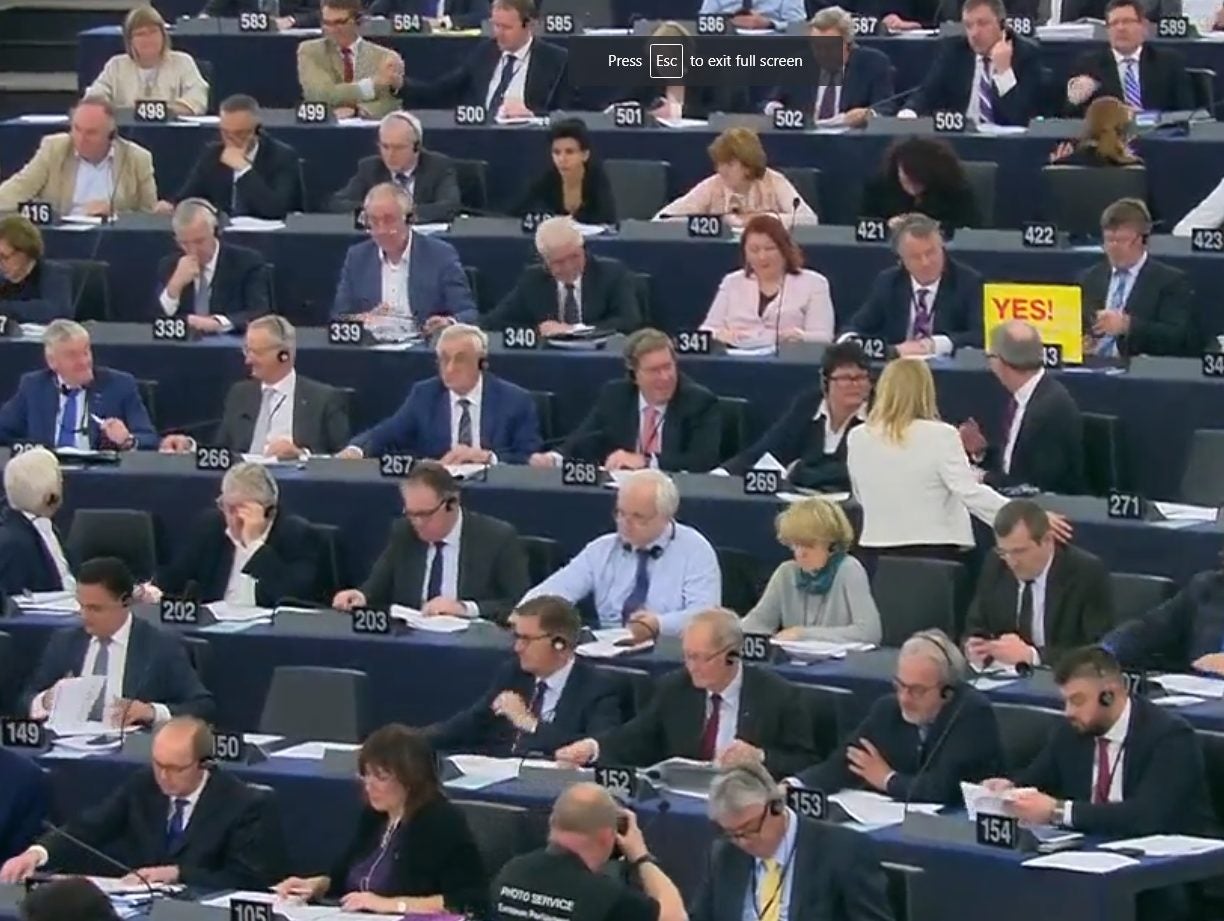
European press publishers have welcomed the passing of a new digital copyright directive that seeks to reinforce the rights of publishers and journalists online across the European Union.
A full session this morning, European Parliament passed the Copyright in the Digital Single Market directive by 348 to 274 votes, a majority of 74, with 36 abstentions.
Carlo Perrone, president of the European Newspaper Publishers’ Association, described it as a “historic vote for Europe’s soul and culture” that brought in copyright reform “essential for the future of press publishing and professional journalism”.
The directive was first proposed by German MEP Axel Voss in 2016 in response to the dominance of digital platforms and their use of copyrighted content online without payment.
It must now be approved by the EU Council. Member states will then have two years to create legislation to match. This currently includes the UK, although our future relationship with the EU remains uncertain.
Sophie Goossens, counsel at law firm Reed Smith, said: “We can expect certain member states to introduce their own nuances and clarifications when doing so and so it will be interesting to observe how harmonised the position is across Europe at the end of the implementation period.”
Under the directive, news aggregators such as Facebook will be able to continue to use news “snippets” without permission from publishers, but only when this is a “very short extract” or “individual words”. Beyond that, the directive includes provisions to protect copyright holders.
It has, however, not created any new rights for publishers and journalists, but reinforces their existing rights and brings the internet in line with existing copyright law.
Under the directive, journalists must get a share of any copyright-related revenue obtained by their news publisher.
It is hoped the directive will push online platforms such as Facebook and Google “to finally roll out a policy to fairly remunerate all those from whose work they make their money”, according to the EU.
Voss said: “This directive is an important step towards correcting a situation which has allowed a few companies to earn huge sums of money without properly remunerating the thousands of creatives and journalists whose work they depend on.
“At the same time, the adopted text contains numerous provisions that will guarantee that the internet remains a space for free expression.
These provisions were not in themselves necessary, because the directive will not be creating any new rights for rights holders. Yet we listened to the concerns raised and chose to doubly guarantee the freedom of expression.
“The ‘meme’, the ‘gif’, the ‘snippet’ are now protected more than ever before.”
Fernando de Yarza Lopez Madrazo, president of News Media Europe said: “This directive will help forge a healthier working relationship between creators and platforms and will help news publishers continue to invest in the creation of fact-checked, professional content to enrich the internet and benefit consumers.”
Picture: European Parliament
Email pged@pressgazette.co.uk to point out mistakes, provide story tips or send in a letter for publication on our "Letters Page" blog
